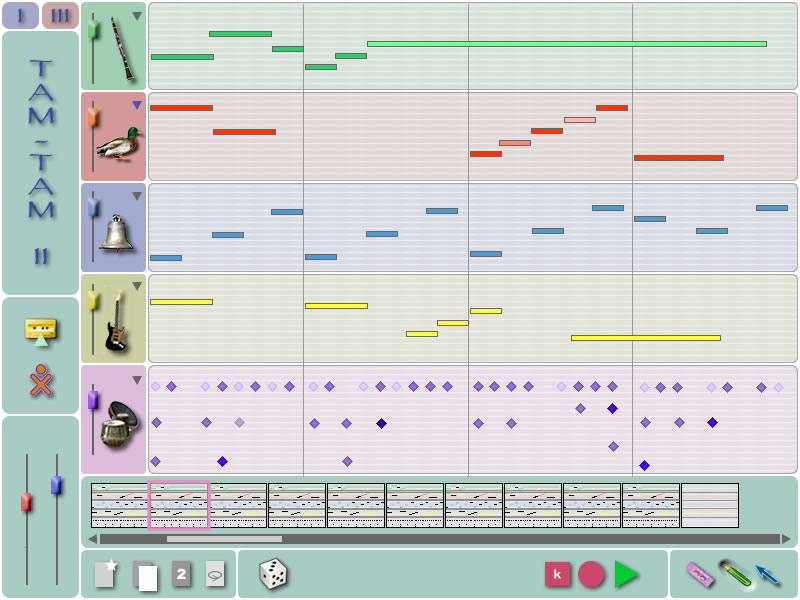TamTam
Contents
A music and sound exploration application for the OLPC
Preliminary page. This is a condensation of the talk given at OLPC in Boston on June 14th 2006.
First a picture of the interface:
The latest screenshot of the upcoming TamTam
Goals
- Provide children with a culturally-informed environment for making music and sound on the OLPC
- Provide an audio/music experience that is instantly rewarding for a musically naïve user
- Provide a playable musical instrument with its own “sound”
- Provide a dynamically adaptable learning environment that proposes simplicity and welcomes complexity
- Use mesh networking to encourage collaborative music making
- Introduce notions of audio and music programming
- TamTam uses CSound as its audio engine
People
- Jean Piché
- Douglas Eck
- Olivier Bélanger
- Sean Wood
- James Bergstra
- Nathanaël Lécaudé
- Adrian Martin
- Eric Lamothe
An explanation of how this will help educate children
Music is like the purest form of mathematics driven instinctively out of the human mind. It connects between people in many ways, and creates ways for expressing emotion, so on that level alone it could be defined as "problem solving".
On a more practical level, TamTam will explain ideas connected with sequences, fractions, repetition, transposition, and alternative graphical notation methods, all of which are absolutely incredibly helpful if you intend to pass exams in mathematics, science, economics and many other disciplines-
Sounds
This section provides information on the sound bank that will be used in TamTam. In addition to the sound bank, users will be able to record short samples using the internal microphone of the OLPC computer.
Development
IRC
We have a channel called #tam_tam on the Freenode network.
Links
Translation of this page in Portuguese.
